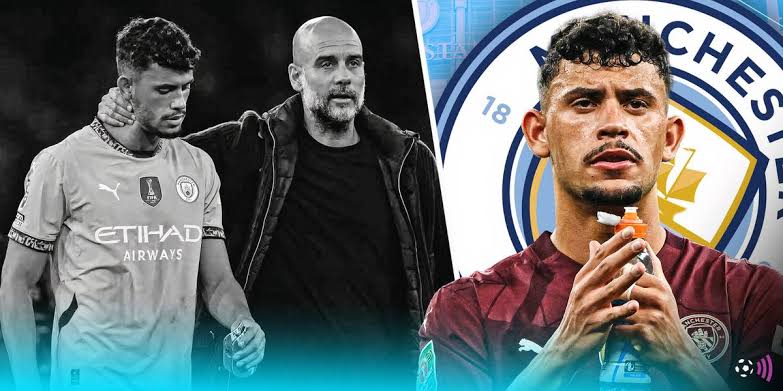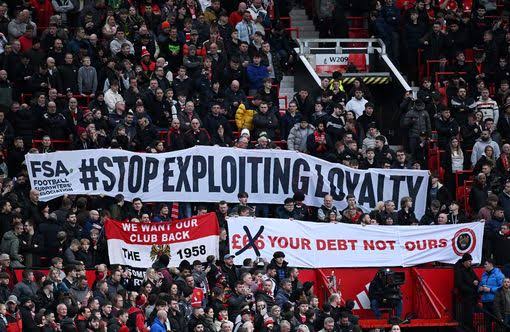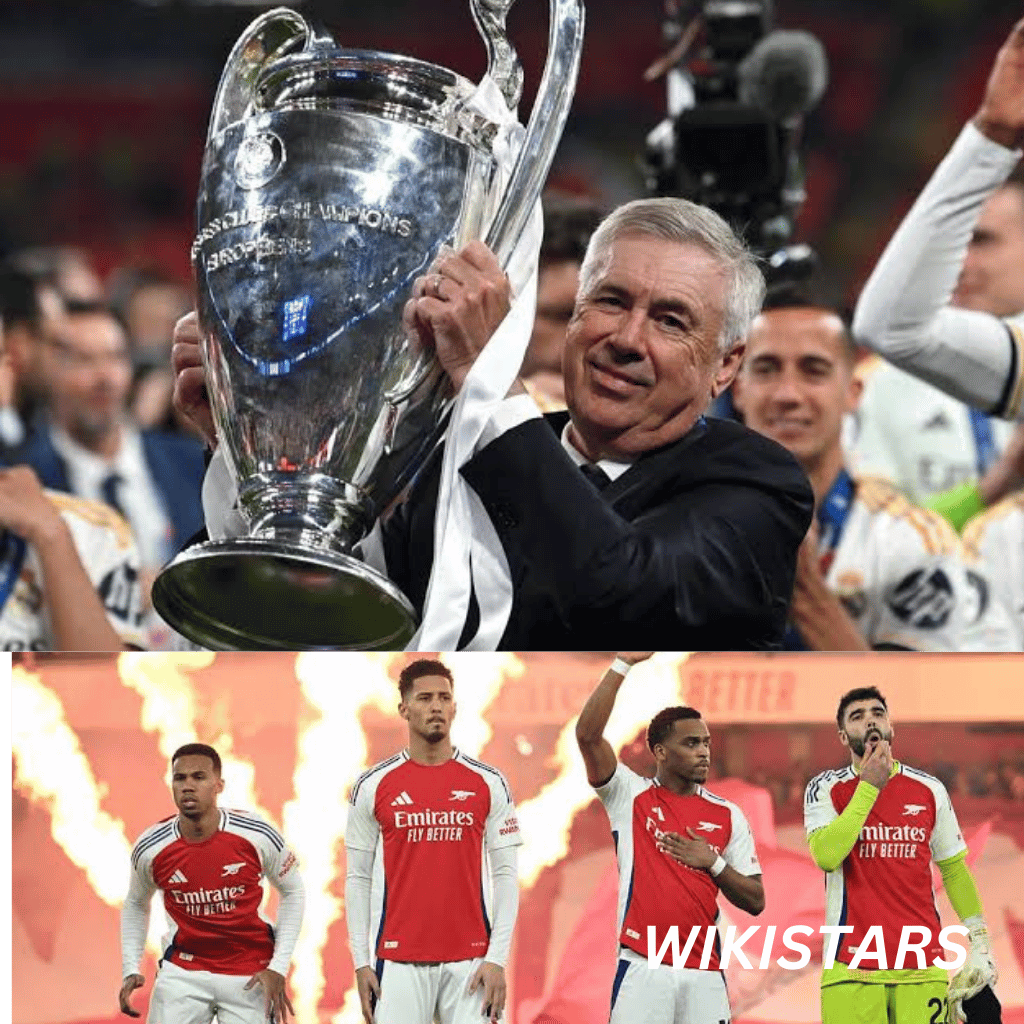‘Man City have just made amazing move after U-turn

The world of football never sleeps, and the third week of June 2025 has proven to be no exception. From Manchester City’s surprising U-turn on ticket pricing to Real Madrid’s concern over their marquee signing Kylian Mbappe’s health, the beautiful game continues to captivate millions around the globe with its blend of sporting excellence, commercial decisions, and human drama
In what many are calling a watershed moment for football’s relationship with its supporters, Manchester City have announced a significant reduction in ticket prices for the 2025-26 season, marking a dramatic reversal from previous pricing strategies that had drawn considerable criticism from their fanbase.
The decision comes at a time when football clubs across Europe are grappling with the delicate balance between maximizing revenue and maintaining accessibility for working-class supporters who have traditionally formed the backbone of football culture. City’s move represents more than just a financial adjustment; it’s a recognition of the fundamental social contract between football clubs and their communities.
This pricing revolution at the Etihad Stadium reflects broader conversations happening across the Premier League and European football about the commercialization of the sport. While clubs have increasingly relied on matchday revenue to fund their operations and player acquisitions, the rising cost of attendance has become a significant barrier for many traditional supporters.
The timing of City’s announcement is particularly significant as it comes during a summer when clubs are actively engaging in expensive transfer dealings. The decision suggests that City’s leadership, guided by their extensive commercial partnerships and revenue streams, feels confident enough in their financial position to prioritize supporter accessibility over short-term matchday revenue maximization.
This move could potentially set a precedent for other Premier League clubs, particularly those facing similar pressure from their supporter bases regarding ticket affordability. The ripple effects of such decisions often extend far beyond individual clubs, potentially influencing league-wide policies and practices.
The hospitalization of Kylian Mbappe ahead of Real Madrid’s crucial Club World Cup fixture has sent shockwaves through the football world, highlighting the intense pressures and physical demands placed on modern elite athletes. The French superstar’s health scare represents a stark reminder that even the most gifted players are not immune to the human frailties that can derail sporting ambitions.
Mbappe’s arrival at Real Madrid was heralded as one of the most significant transfers in modern football history, bringing together one of the world’s most talented players with the most successful club in European competition. However, his integration into the squad and adaptation to Spanish football has reportedly been more challenging than initially anticipated.
The hospitalization raises questions about the physical and mental pressures placed on elite footballers in an increasingly demanding sporting calendar. Modern players face year-round competition with minimal rest periods, international duties, club commitments, and commercial obligations creating a perfect storm of exhaustion and stress.
Real Madrid’s medical team will undoubtedly be conducting thorough assessments to determine both the immediate cause of Mbappe’s hospitalization and any underlying factors that may have contributed to his condition. The club’s approach to player welfare and medical care has historically been exemplary, but this incident serves as a reminder of the constant vigilance required to maintain player health at the highest level.
The timing is particularly concerning given Real Madrid’s participation in the Club World Cup, a tournament that represents significant prestige and financial rewards for the Spanish giants. The potential absence of their marquee signing could significantly impact their tactical approach and overall tournament ambitions.
Arsenal’s summer transfer activities continue to generate significant speculation, with multiple storylines developing simultaneously across different areas of the squad. The potential departure of Thomas Partey, coupled with ongoing negotiations and strategic planning, reflects the complex nature of modern football squad management.
The Ghanaian midfielder’s situation exemplifies the challenges clubs face when dealing with players entering the final phases of their contracts. Partey’s contributions to Arsenal’s recent successes cannot be understated, yet the financial realities of modern football often necessitate difficult decisions regarding player retention and contract renewals.
The stalemate in contract negotiations suggests fundamental disagreements between the player’s camp and the club regarding terms, duration, or financial compensation. Such situations are increasingly common in modern football, where player power and financial constraints create complex negotiation dynamics.
Arsenal’s approach to this situation will likely influence their broader transfer strategy for the summer window. The potential departure of a key midfielder would necessitate replacement planning, budget reallocation, and tactical adjustments that could have far-reaching implications for their upcoming campaign.
The club’s ability to navigate these negotiations while maintaining squad harmony and competitive strength will be crucial to their continued development under current management. The resolution of Partey’s situation could set the tone for other contract discussions and transfer activities throughout the remainder of the summer window.
he Swedish striker’s reported decision regarding his next destination has captured the attention of football’s elite clubs, with Arsenal and Manchester United among the most prominent suitors. Gyokeres represents the modern striker archetype: physically imposing, technically skilled, and tactically versatile enough to adapt to various playing styles and systems.
His apparent preference for Arsenal over Manchester United speaks to several factors that influence modern transfer decisions. Arsenal’s recent trajectory under their current management, their style of play, and their competitive prospects may have proven more appealing than United’s current situation and uncertainty.
The competition for Gyokeres’ signature reflects the premium placed on quality strikers in modern football. Clubs are increasingly willing to invest significant resources in players who can provide consistent goal-scoring threats while contributing to overall team play and tactical flexibility.
Arsenal’s pursuit of the striker aligns with their apparent strategy of targeting players who can immediately contribute to their title ambitions while possessing the potential for further development. The addition of a proven goalscorer could provide the final piece in their tactical puzzle as they seek to challenge for major honors.
Manchester United’s apparent disappointment in losing out on Gyokeres highlights their ongoing struggles to attract top-tier talent despite their historical prestige and financial resources. The club’s current competitive position and uncertainty regarding their future direction may be impacting their appeal to elite players.
The revelation regarding Tottenham’s potential £200 million-plus spending spree has stunned supporters who have become accustomed to more conservative transfer approaches from the North London club. This dramatic shift in transfer strategy suggests significant changes in the club’s ambitions and financial planning.
Daniel Levy’s apparent willingness to sanction such substantial expenditure represents a marked departure from his traditionally cautious approach to transfer dealings. The decision likely reflects recognition that significant investment is required to bridge the gap between Tottenham’s current position and their ambitions to compete with Europe’s elite.
The scale of the proposed spending suggests that Tottenham are targeting multiple high-profile acquisitions across various positions, indicating a comprehensive squad overhaul rather than targeted improvements. Such an approach carries both significant potential rewards and considerable risks.
The success of this strategy will depend heavily on the club’s ability to identify the right players, negotiate reasonable transfer fees, and successfully integrate new signings into their existing squad structure. Historical precedent suggests that clubs attempting rapid transformation through massive spending often face challenges in achieving immediate success.
Supporter reactions to these revelations have been mixed, with excitement about potential signings tempered by concerns about the sustainability of such spending and its alignment with the club’s long-term strategic planning.
These individual stories collectively illustrate the complex financial and competitive dynamics that define modern football. Clubs are simultaneously dealing with supporter accessibility concerns, player welfare issues, transfer market inflation, and the constant pressure to remain competitive at the highest level.
The contrast between Manchester City’s decision to reduce ticket prices and Tottenham’s apparent willingness to spend over £200 million on transfers highlights the different approaches clubs take to balancing supporter engagement with competitive investment. Both strategies reflect valid responses to the challenges facing modern football clubs.
The health concerns surrounding Mbappe serve as a sobering reminder that football’s human elements remain paramount despite the sport’s increasing commercialization. Player welfare considerations are becoming increasingly important as the demands placed on elite athletes continue to intensify.
Transfer market dynamics, as illustrated by the Gyokeres situation and Arsenal’s various negotiations, demonstrate the complex decision-making processes that players and clubs must navigate. Factors extending far beyond simple financial considerations often influence these crucial career decisions
The recognition of emerging talents through awards like the PFA Young Player of the Year highlights football’s continued emphasis on youth development and the identification of future stars. The competition between Arsenal duo and Chelsea’s new signing for this prestigious award reflects the Premier League’s strength in nurturing young talent.
Investment in youth development has become increasingly important as clubs seek to balance financial sustainability with competitive success. The ability to develop talented young players provides both sporting and commercial benefits, creating sustainable pathways for squad improvement while potentially generating significant transfer revenues.
The success of young players in high-pressure environments like the Premier League continues to inspire confidence in youth development programs across English football. These success stories validate the substantial investments clubs make in their academy systems and youth coaching infrastructure.
Lucy Bronze’s response to squad controversies ahead of Euro 2025 demonstrates the ongoing challenges facing international football as it seeks to balance competitive integrity with broader social and political considerations. The England defender’s defiant message reflects the complexity of modern international football, where sporting excellence intersects with social responsibility.
The preparation for major tournaments like Euro 2025 involves numerous stakeholders, from players and coaches to administrators and supporters. Managing these relationships while maintaining focus on sporting objectives requires exceptional leadership and communication skills.
The impact of international tournaments extends far beyond the competitions themselves, influencing domestic league scheduling, player fatigue management, and transfer market timing. These tournaments represent both opportunities and challenges for clubs as they seek to balance player development with injury prevention.
The transfer activities in lower leagues, exemplified by situations at clubs like Leyton Orient, Huddersfield, and Sunderland, demonstrate that competitive dynamics extend throughout the football pyramid. These clubs face similar challenges to their Premier League counterparts but with significantly different resource constraints.
The seven-figure bid for Galbraith and Sunderland’s interest in Joe Gomez illustrate how ambitious lower-league clubs are increasingly willing to invest substantial sums to secure promotion or maintain competitive advantage. These investments represent significant financial commitments for clubs operating with more modest revenue streams.
The success of such investments often determines the long-term trajectory of these clubs, making transfer decisions particularly crucial for their sporting and financial sustainability. The pressure to make correct decisions is often intensified by the limited margin for error that characterizes lower-league football.
The story of a footballer providing shelter for Iranians affected by regional conflicts highlights football’s potential as a force for positive social impact. Such actions demonstrate how individual players can leverage their resources and platforms to address humanitarian concerns beyond the sporting arena.
These examples of social responsibility reflect growing expectations that football personalities will engage with broader social and political issues. The global reach and influence of football create opportunities for positive impact that extend far beyond entertainment value.
The intersection of sport and social responsibility continues to evolve as players, clubs, and administrators navigate their roles in addressing societal challenges while maintaining focus on their primary sporting objectives.
The stories emerging from this single week in June 2025 encapsulate the multifaceted nature of modern football. From financial decisions and transfer negotiations to health concerns and social responsibility, the sport continues to reflect broader societal trends and challenges.
Football’s ability to generate passionate engagement across diverse topics demonstrates its unique cultural significance. Whether discussing ticket pricing policies, player welfare, or international competitions, football provides a common language that transcends traditional boundaries.
The continued evolution of football as both a sporting spectacle and commercial enterprise ensures that these types of complex, interconnected stories will continue to emerge. The challenge for all stakeholders is to navigate these complexities while preserving the essential qualities that make football the world’s most beloved sport.
As we move forward into the summer of 2025, these stories serve as important indicators of football’s direction and the priorities that will shape its future development. The decisions made today will influence how football evolves and adapts to meet the challenges and opportunities of tomorrow.















